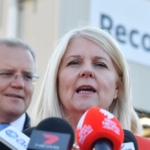Reforming Australia’s medical billing

New research reveals GPs and specialists are ill-equipped to manage their Medicare compliance obligations, and have trouble accessing accurate advice and education, which can lead to billing errors. It finds that structural reforms are urgently needed to address the problem.
Medicare billing mistakes have the potential to cost taxpayers millions of dollars, increase out of pocket healthcare costs for patients, and undermine the integrity and future sustainability of Australia’s universal healthcare system.
“Incorrect billing rests in a spectrum with criminal fraud at one end and unintentional errors at the other. There’s a view that doctors are out there rorting Medicare. I wanted to find out if that was true, or whether there was something else going on,” says lead author Dr Margaret Faux.
Dr Faux has just completed a PhD thesis at the University of Technology Sydney on Medicare claiming and compliance. She concludes that a principal cause of non-compliant medical billing in Australia is systemic issues rather than deliberate abuse by doctors.
“A single Medicare service in Australia can be the subject of more than 30 different payment rates, multiple claiming methods and myriad rules. Continual changes due to Covid-19, such as those around telehealth, also add to the confusion.
“It’s an unpalatable truth that Medicare is in very poor shape. Compliance has become almost impossible for doctors, and the system needs urgent reform. Current punitive policing strategies are failing. They are not fit for purpose,” she says.
A paper just published in the journal PLOS ONE, led by Dr Faux with researchers from UTS, UNSW and Southern Cross University, outlines findings from in-depth interviews with 27 specialist and general medical practitioners who claim Medicare reimbursements in their daily practice.
The study: Wading through Molasses: A qualitative examination of the experiences, perceptions, attitudes, and knowledge of Australian medical practitioners regarding medical billing identifies five key themes from the interviews:
- There is little or no induction or training around medical billing
- There is a lack of knowledge and understanding around fundamental legal requirements
- There is an absence of reliable advice and support around billing – even from Medicare.
- Doctors are afraid of making billing mistakes
- There are unmet opportunities for improvement
“Strategies to address the barriers and deficiencies identified by participants in the study require a multi-pronged approach,” says Dr Faux.
“This includes the development of clear, legally binding medical billing rules, nationally consistent, accurate and accessible education, and structural reform to tighten and align the underlying regulatory framework,” she says.
In her PhD, Dr Faux provides 27 recommendations for reform across three areas: regulatory, educational, and digital reforms, to modernise and streamline the system, and better equip doctors to manage their Medicare compliance obligations.
“Doctors currently have no choice but to try and comply with an incomprehensible system that they do not understand and feel powerless to change. Without reform, the government can expect no improvement in leakage and non-compliance.”
Open Forum is a policy discussion website produced by Global Access Partners – Australia’s Institute for Active Policy. We welcome contributions and invite you to submit a blog to the editor and follow us on Twitter, Facebook, Linkedin and Mastadon.












